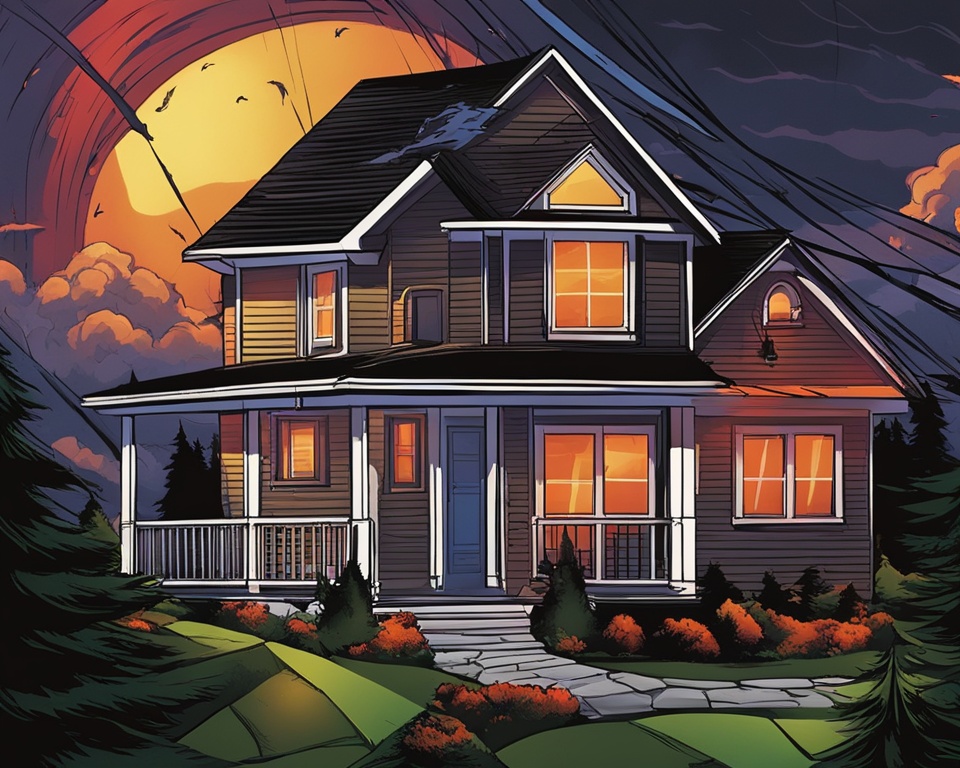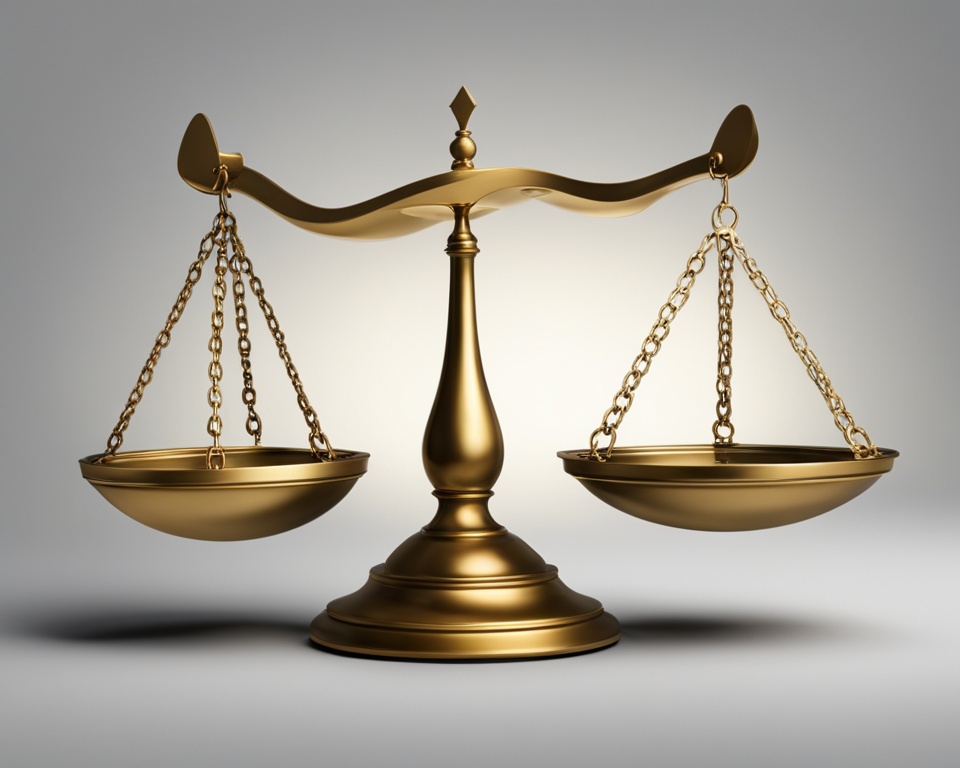Safeguarding your biggest investment is vital as a homeowner. Homeowners’ insurance offers full coverage. It protects your house and items from various risks like fires, storms, theft, and lawsuits.1 Knowing its key benefits helps you make a wise choice. You can choose the right protection for your needs and wallet.
Key Takeaways
- Homeowners’ insurance offers a range of coverage options, including Actual Cash Value, Replacement Cost, and Guaranteed or Extended Replacement Cost policies.1
- Factors such as location, age, and construction type of your home can influence insurance rates, along with your credit score, claim history, and chosen deductible.1
- Bundling insurance policies with the same provider can lead to significant discounts, and regularly reviewing your coverage is crucial for maintaining adequate protection.1
- Homeowners’ insurance typically covers damage from fires, hurricanes, hail, and other disasters, but may exclude certain natural events like earthquakes and floods.1
- Personal injury coverage can provide protection against social media defamation, false arrest, and other legal liabilities, often at a relatively low cost.2
Understanding Homeowners’ Insurance
Being a homeowner, it’s vital to know what homeowners’ insurance offers. It covers your home’s structure, belongings, and liability. This protects you money-wise from events like fire, theft, or natural disasters.3
Defining Homeowners’ Insurance
Homeowners’ insurance has two main parts: property coverage and liability coverage. Property coverage takes care of your home, structures on your land, and belongings.4 Liability coverage helps if someone gets hurt at your place. It pays for legal costs and medical bills they may face.
Types of Homeowners’ Insurance Policies
There are many types of policies to pick from. Each offers different levels of coverage and costs. You can choose the one that suits your needs and budget best.3 Policies can offer Actual Cash Value, Replacement Cost, or Guaranteed Replacement Cost/Value.
Knowing about homeowners’ insurance components helps you choose wisely. You can get the right coverage for your home, belongings, and financial health.
Property Coverage: Safeguarding Your Investment
The property coverage in your homeowners’ insurance protects your house and what’s inside.5 Dwelling coverage helps if something happens to the main home parts like the roof or walls. It can cover damage from fire, wind, or hail.5 You’ll also get coverage for other buildings on your property, like a garage. And, it includes personal belongings too, such as your TV or clothes.5 If you need to live somewhere else temporarily, the insurance might help with costs like food and a new place to stay. Make sure you pick the right coverage amounts. Think about how much it would cost to replace your things, not just what they are worth now.
| Coverage Type | Description | Key Features |
|---|---|---|
| Dwelling Coverage | Protects the structure of your home, including the foundation, walls, and roof. | Covers damage from covered perils like fire, wind, or hail.5 |
| Other Structures Coverage | Protects detached buildings on your property, such as a garage, shed, or fence. | Provides coverage for damage to other structures not attached to your home.5 |
| Personal Property Coverage | Protects your belongings, including furniture, clothing, and electronics. | Covers personal items both inside and outside of your home.5 |
| Loss of Use Coverage | Provides financial assistance if you are forced to temporarily relocate due to a covered loss. | Helps cover the cost of temporary housing, meals, and other living expenses.5 |
When picking how much coverage to get, remember to think about the replacement cost value. This is the cost to replace your home and things. Don’t just think about what they are worth now.

Liability Protection: Shielding You from Legal Risks
Homeowners’ insurance helps by covering cases where someone gets hurt on your property. It also protects you in case you’re responsible for damages, or if your family members are.6 Especially, people like general partners and sole proprietors might have to pay if something goes wrong in their business. But working through a corporation can help keep your personal assets safe.6 When you make deals, like taking out a bank loan, doing it through your business means your personal belongings are protected.6
Personal Liability Coverage
This part of your insurance safeguards you if you’re sued. It helps with costs like court fees or settlements, up to the amount your policy covers.6 It can protect against claims if someone is hurt because of your actions. But, if you’re the one who does something wrong, it might not help much.6 Even if you’re part of an LLC, you could be held responsible for bad actions. This includes acting on behalf of the company.6
Medical Payments Coverage
Medical payments coverage steps in for minor injuries on your property. It lets guests send their medical bills to your insurance directly.6 If you’re an officer or agent and bad things happen while you’re working, you might have to face the consequences.6 Likewise, if you were involved in any negligence in your company, you could be found personally liable.6 This coverage is your first line of defense. It can keep you out of expensive legal troubles, offering peace of mind against accidents or injuries at your home.
Additional Considerations
Your standard homeowners’ insurance does not cover everything. For example, it usually doesn’t include protection from floods or earthquakes.7 If you live in an area at high risk for these disasters, you might need to buy extra insurance.7
Disaster Coverage: Floods and Earthquakes
If you’re in a place where floods or earthquakes can happen, you really should think about getting extra insurance.7 This special insurance helps you fix or rebuild your house and get new things if something really bad happens.7
Vacant Property Coverage
Leaving your home empty for a long time can be risky. A special policy for vacant homes helps protect you from theft or damage.7 This coverage is important, especially in areas where homes may stay empty for a while.7

Knowing about disaster and vacant property insurance is key to keeping your home and finances safe from the unexpected.13
Homeowners’ Insurance Benefits
Homeowners’ insurance offers many benefits. It guards your home, things inside it, and your finances. Its main advantages include:
- Property damage coverage shields your home and its structures. It covers damage from fires, wind, or hail.78
- Liability coverage protects you if someone gets hurt at your place. It also helps if you’re liable for damages done by you or your family.78
- It also protects your personal items from loss or damage. This includes your furniture, clothes, and electronics, both at home and away.78
- If you need to live elsewhere temporarily – say, due to a fire – it helps cover those costs. This includes temporary housing and daily living expenses.7
These benefits offer peace of mind and security to homeowners. They safeguard your primary investment and your family’s future.78
Annual Policy Reviews: Ensuring Optimal Coverage
As a homeowner, you should look at your9 homeowners’ insurance every year. This keeps your coverage just right. Insurance experts say doing this helps make sure you’re getting the best coverage.10 Try to check your insurance at least once yearly. Your insurer will help you see if your house, belongings, or family have changed. These changes might mean you need to update your insurance.
If you’ve made your home better, you might need more coverage.11 For example, adding a diamond ring or a new car will need extra coverage.11 Also, running a business from home might need a different policy. Your normal one might not cover it.
Big life moments can change your insurance needs.10 Things like getting married can impact your life insurance. Or, having a baby might change who gets money if something happens to you.10 Looking at your insurance deals can sometimes lower your costs. You might get new discounts or change your coverage in smart ways.10 Think about checking your insurance when big events happen or when it’s time to renew (usually, once a year).
Events like getting a new job or retiring make good reasons to talk to your insurance agent.10 They can make sure your insurance is up-to-date with your life. It’s smart to look at your insurance needs every year.10 Without doing this, you might not have the right coverage. This is especially true if you get new valuable items or go through major life changes.
Checking your insurance every year makes sure it fits what you really need. It also helps make sure you’re not overpaying. Knowing your policy well is also key to keeping your home and stuff safe.9 Looking at your insurance every year is a good practice. It makes sure you have the best coverage options.
Deductibles and Premiums: Striking the Right Balance
Homeowners’ insurance is a must, and it’s key to balance deductibles and premiums right. Your deductible is what you pay first before your insurance steps in.12 If you pick a higher deductible, your monthly or yearly payment goes down. But, if you claim, you’ll pay more at the start.12
Understanding Deductibles
12 A deductible is what you agree to pay from your pocket before insurance helps. Deductibles are found in health, auto, and homeowner’s policies.12 Going for a higher deductible means you might save on regular payments.12 It could also make you more careful, reducing accidents and claims.12 And, if you don’t claim often, you could save money in the long run.12 But, remember to check if you can afford a high deductible if you need to claim.12 Comparing different insurance companies and their offers can help find the best deal.12 Keep checking your insurance as life changes to make sure you’re still getting the best deal.12
Factors Affecting Premiums
13 Usually, higher deductibles mean lower insurance costs. It could save you money over time.13 But, picking lower deductibles makes the insurance cost more. It can make things easier if you do end up needing to claim.13 A low deductible brings peace of mind. It means you’ll pay less out of pocket for a claim.13 Homeowners must think about their home’s value and risks to set the best deductible.13 By looking at past claims, you can see if your deductible needs adjusting based on future risks.13 It’s smart to review and change deductibles as your life changes. This way, you get the best coverage for the price.13 Adding security systems can lower your risk and might help lower your deductible.13 Preventive measures, like security systems, make your home safer. This can affect how much you pay and how you set your deductibles.13 Knowing the different deductible options helps you customize your policy to your needs.13
14 Insurance costs can be paid every month, three months, or once a year.14 The amount you pay depends on many things, like the type of insurance and where you live.14 With visitor insurance, choosing a higher deductible usually means lower payments. Lower deductibles, however, cost more.14 Older folks might need to pay more for visitor insurance.14 Once you have insurance, you can’t change the deductible. You’d need to get a new policy.14 A high deductible in visitor insurance may lower your premium but means you pay more for medical care.14 After you pay up to the deductible in visitor insurance, the co-insurance help more with the bills.14

Discounts and Cost-Saving Strategies
You can bring down your homeowners’ insurance costs wisely. By combining your homeowners’ insurance with other types, like auto or life insurance, you get big discounts. Insurers give good deals to keep their clients using different policies with them.
Home Security Measures
Boost your savings on homeowners’ insurance by adding home security, like alarms or fire systems. These show you care about protecting your home. Insurers may cut your costs because of this extra safety measure.15
Loyalty Discounts
Stick with one insurer for a long time and you might get a loyalty discount. It pays to stay loyal. This can shave off a lot from your home insurance bill.16
By wisely using these savings strategies, like bundling policies, putting in security systems, and earning loyalty discounts, you’ll make the most of your homeowners’ insurance. Plus, you’ll keep your insurance costs under control.1615
Claims Process: Navigating the Procedures
If you need to file a homeowners’ insurance claim, knowing the process is key. Start by telling your insurance company about the incident.17 You can do this by calling the claims hotline or filling out a claim form online.17 Make sure you have all the loss details ready. This includes the date, time, and cause of the loss. Also, list any items that were stolen or damaged.17
Filing a Claim
Fast action is crucial when you file a claim.18 Your insurance should acknowledge they received your claim within 15 business days.18 They might ask for extra documents like receipts or photos. Make sure you know the claims process and have your info ready. This can make getting your claim resolved quickly and smoothly. It helps to get your home back in order fast.
Claim Documentation
Having the right documents is vital for your claim’s success.18 Your insurance must decide on your claim within 15 business days of getting all info. If they don’t agree to pay, they need to tell you why in writing.18 For claims that cover replacing items, you may get two payments. The first payment is an estimate, minus depreciation. The second comes after you’ve done the repairs.18 Keep good records and provide all the needed documents. This can speed up your claim and make sure you get the full amount you should from your policy.
Choosing the Right Insurance Provider
Choosing the right insurance company for your home and assets is crucial. A good company should be known for its strong financial health. This ensures they can pay claims when needed.19 Think about how they handle customer service and claims. This matters a lot if you need to file a claim.19
Company Reputation and Financial Stability
Check out online reviews and ask people you know for advice. Also, get quotes from several companies to see what fits your needs and budget best.19 It’s important to look at financial strength ratings from places like AM Best and Standard & Poor’s. This tells you if they can really pay if you ever need to claim.19
Customer Service and Claims Handling
When choosing a company, look for easy-to-reach customer service and local agents. Digital tools for managing your policy can be a big plus. Don’t forget about claims satisfaction either.19 J.D. Power ratings are a good resource. They measure overall customer happiness with the insurance company. This covers aspects like the cost, the help from agents, and how claims are handled.19
By picking a company strong in finances, offering great service, and handling claims quickly, you’re off to a great start. You’ll have peace of mind for your home and family.

Protecting Your Home: A Comprehensive Approach
Keeping your home safe needs more than insurance. You should also regularly keep up your home and work to lower risks3. This means doing things like cleaning gutters, checking the roof, and making sure smoke detectors work3. These steps can stop many common problems and lower your need to use insurance3.
Home Maintenance and Risk Mitigation
Insurance companies look at things like how well you keep your home and if you have certain dog breeds to set rates3. By taking steps to protect your home, you reduce the chances of damage3. At the same time, you ensure your insurance policy is worth its cost3.
Reviewing Coverage Regularly
It’s crucial to check your insurance now and then to stay protected3. Rates are decided by many things, including your claims history and where you live3. Making sure your coverage suits your needs helps keep you and your home safe3.
Conclusion
Having homeowners’ insurance is very important. It protects your house, what’s inside, and your money.20 You’re covered for things like damage, accidents, and added costs if you can’t stay at home.20 Stay smart by checking your policy often, saving money, and keeping your home safe.20 This is vital whether you just bought a house or have lived there a while. Find the best insurance to feel secure and protect your family’s future.
Often, you need homeowners’ insurance when buying a home,21 and it helps keep your investment safe.20 For example, it pays to fix your home if damaged or rebuilds it after a disaster.21 You’re also covered for many of your things, like your clothes and gadgets.21 This insurance even helps if someone gets hurt on your property.21 Having good insurance is a smart move to protect your house and wallet.
When checking your insurance, look into special add-ons and options that could make you safer. These could include more coverage for things outside the house or extra protection if you’re responsible for someone’s injury.22 Always keep talking to your insurance company, so your coverage stays right for you.22 Take steps to reduce risks at home and make the most of your insurance.22 This way, you and your home are better ready for any surprises. It gives you peace of mind and keeps your family’s future protected.
FAQ
What is homeowners’ insurance and what does it cover?
What are the main sections of a homeowners’ insurance policy?
What does the property coverage section of a homeowners’ insurance policy include?
What does the liability coverage section of a homeowners’ insurance policy include?
Are there any exclusions or additional coverages I should be aware of with homeowners’ insurance?
What are the key benefits of homeowners’ insurance?
How often should I review my homeowners’ insurance policy?
How can I save money on my homeowners’ insurance premiums?
What should I do if I need to file a homeowners’ insurance claim?
How do I choose the right homeowners’ insurance provider?
Source Links
- https://www.ridewithloop.com/blog/home-insurance-explained
- https://www.berryinsurance.com/blog/online-defamation-home-insurance-video
- https://www.investopedia.com/insurance/homeowners-insurance-guide/
- https://www.doi.sc.gov/963/Understanding-Basic-Homeowners-Insurance
- https://myhome.freddiemac.com/blog/homeownership/protecting-your-investment-home-insurance
- https://cenkuslaw.com/llc-corporation-liability-protection/
- https://www.usnews.com/insurance/homeowners-insurance/what-does-homeowners-insurance-cover
- https://content.naic.org/cipr-topics/homeowners-insurance
- http://www.rmiia.org/homeowners/Walking_Through_Your_Policy/Homeowners_Insurance_basics.asp
- https://www.travelers.com/resources/home/insuring/how-often-should-i-review-my-insurance-coverage
- https://www.nationwide.com/lc/resources/home/articles/home-insurance-checkup
- https://www.capitolbenefits.com/increasing-deductibles-to-lower-premiums-a-smart-strategy-for-your-insurance-needs/
- https://iastl.com/blog/how-your-deductible-choice-affects-your-home-insurance-premiums/
- https://www.visitorguard.com/deductible-vs-premium-finding-the-balance-for-affordable-coverage/
- https://www.nerdwallet.com/article/insurance/save-on-homeowners-insurance
- https://www.iii.org/article/how-to-save-money-on-your-homeowners-insurance
- https://www.travelers.com/resources/home/insuring/how-the-home-insurance-claim-process-works
- https://www.tdi.texas.gov/tips/getting-your-insurance-claim-paid.html
- https://www.bankrate.com/insurance/homeowners-insurance/how-to-choose-best-home-insurance-company/
- https://www.travelers.com/resources/home/insuring/do-i-need-homeowners-insurance-and-when-should-i-buy-it
- https://www.kiplinger.com/personal-finance/home-insurance/do-you-need-home-insurance
- https://roughnotes.com/homeowners-policies-the-conclusion/
